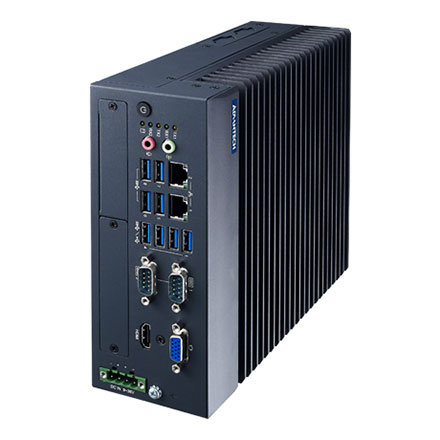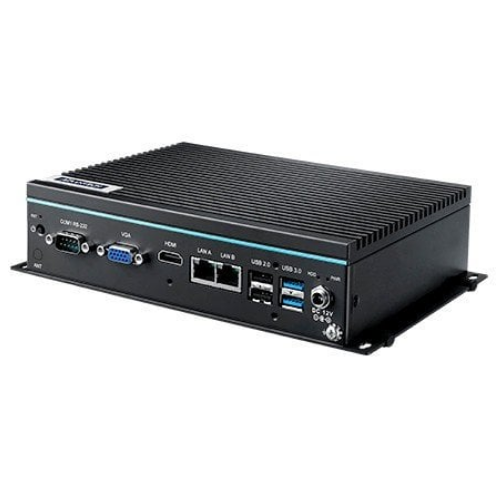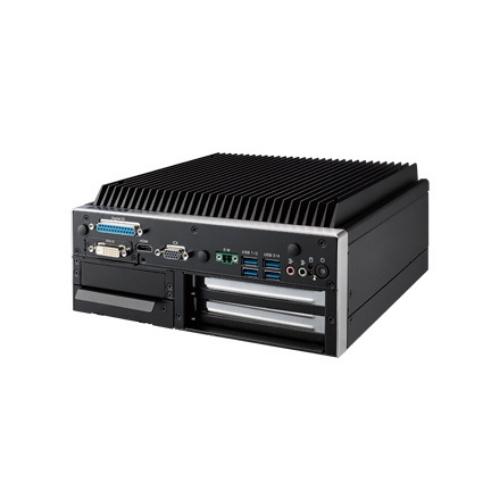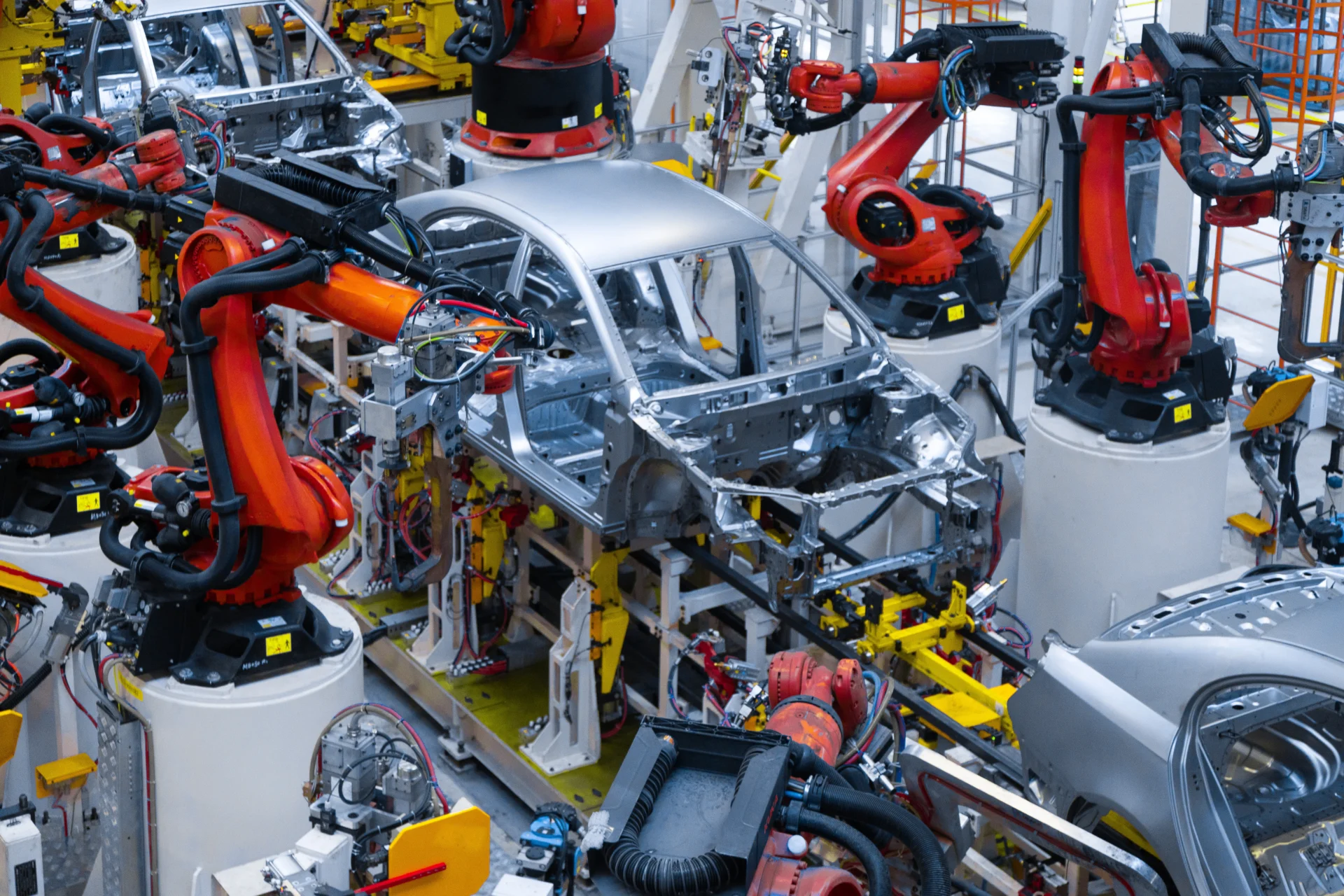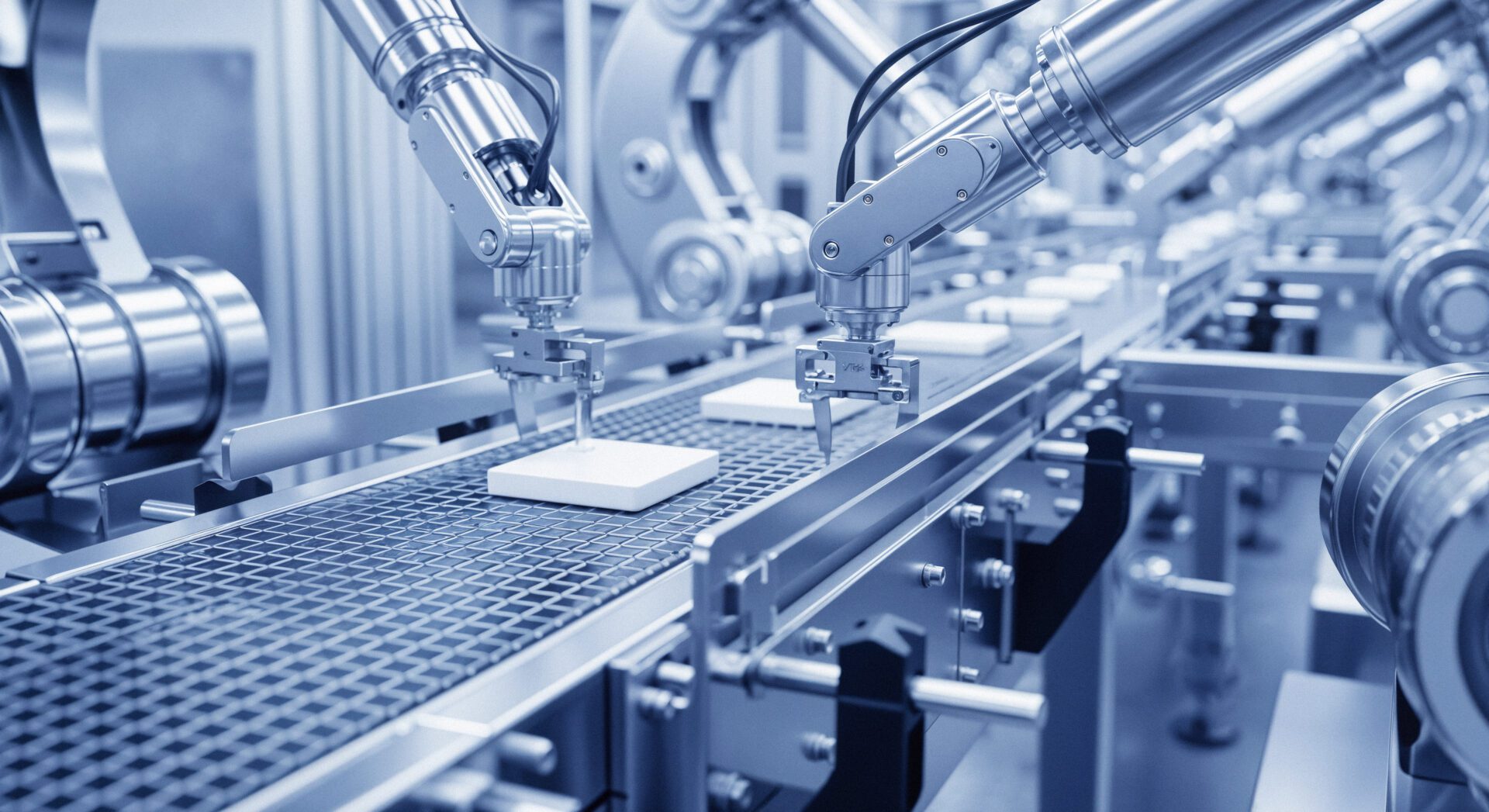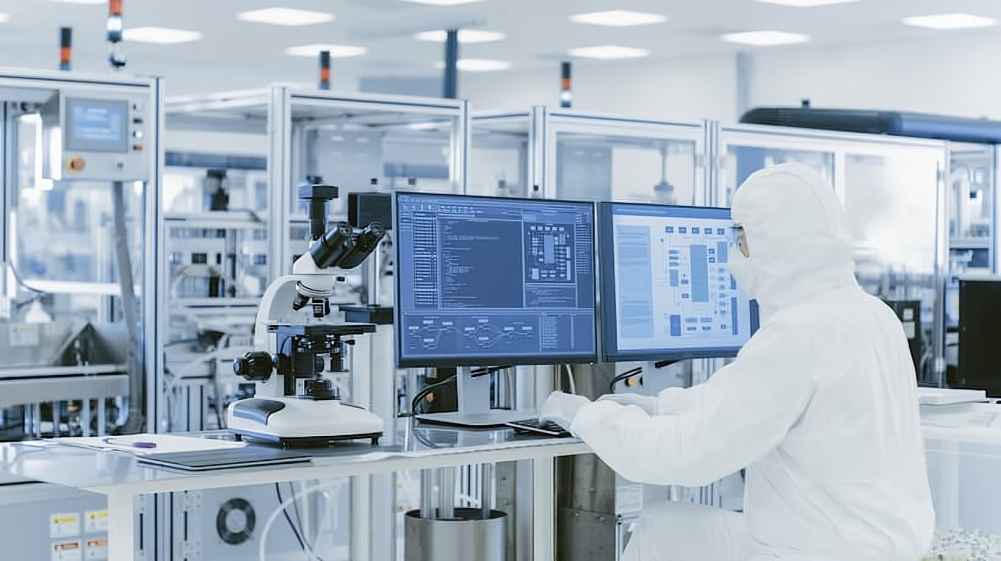Introduction: What is an industrial PC? An industrial PC (industrial computer) is a strong, durable computer built for tough jobs on a factory floor or in harsh environments. Unlike home or office PCs, industrial PCs have rugged metal cases, often no cooling fans (fanless design), and sealed connectors. These designs keep out dust and vibrations. Industrial PCs control machines, run automation software, and gather data in plants and factories. They handle tasks like guiding robots, inspecting parts with cameras, and collecting sensor data for predictive maintenance. In short, an industrial PC is a ruggedized computer that can run 24/7 in conditions where ordinary PCs would fail.
Industrial PCs look similar to normal desktop or business computers in terms of processor and storage, but they are built very differently. They are designed for greater reliability, longevity, and flexibility. In factories, these computers often run around the clock. They must tolerate heat, cold, dust, oil, and constant vibration without breaking down. Commercial (office or consumer) PCs are not made for that. Ordinary PCs expect clean indoor use and short workdays. In contrast, an industrial PC is engineered to avoid failures under shock, moisture, extreme temperatures, and other industrial hazards.
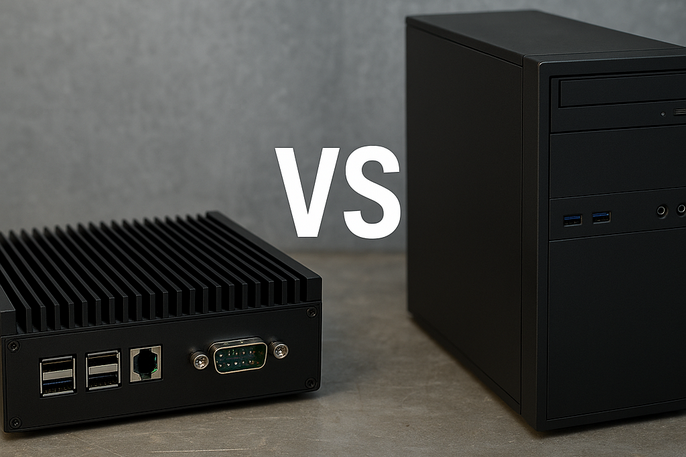
Industrial PC vs Commercial PC
Industrial PCs and commercial PCs (office/workstation computers) can seem similar at first, but they serve very different needs. Below are key differences:
-
Ruggedness: Industrial PCs use heavy-duty metal enclosures and usually are fanless. Without spinning fans or ventilation holes, they stay sealed against dust and water. Commercial PCs usually have plastic cases with vents and fans, which let in dust. This means an office PC can overheat or fail if debris or liquids enter it; an industrial PC resists these problems.
-
Durability: Industrial PCs are built to handle shock and vibration. For example, many are tested to military standards (MIL-STD) for vibration. They use one-piece metal chassis and rugged components that won’t loosen or break during bumps or machine vibration. Commercial PCs have many moving parts and joints; even small shakes can cause connectors to fail in them.
-
Environmental Protection: Industrial PCs often have high ingress protection (IP) ratings. This means their cases are sealed against dust and water. Some have special M12 locking connectors that are dust- and water-proof. An industrial PC can even be sprayed with water or cleaned with high-pressure jets in a food plant, whereas a commercial PC will fail. In contrast, standard PCs have no such rating and assume clean indoor use.
-
Temperature Range: Industrial PCs tolerate extreme temperatures. They use high-grade chips and heat-sinking so they can run in frigid cold or blazing heat (often from –40°C up to +85°C). Commercial PCs only work reliably in a narrow range (typically 0–35°C). Heat beyond that or sub-zero cold can destroy office PCs but an industrial PC keeps running.
-
Power and I/O Flexibility: Industrial systems often need DC power or vehicle power. Industrial PCs can accept a wide input voltage (e.g. 9–48V DC) with protections for surges. They also have many I/O ports: extra USB, Ethernet, serial (RS‑232/485), digital I/O, and even CANbus for industrial devices. Commercial PCs have only standard USB/LAN and require fixed AC power. Industrial PCs may use hot-swappable cards and rugged cables to adapt to sensors and machines.
-
Expandability and Lifecycle: Industrial PCs are designed to be upgradable and supported for many years. They include PCI/PCIe slots, RAID storage, and modular designs so new cards or drives can be added. This is important because factories often run the same equipment for a decade. Industrial PC vendors keep parts available long-term. Commercial PCs, however, are usually thrown away after a few years. Having to replace a desktop PC in a factory line frequently would cost much more over time.
-
Reliability and Uptime: Industrial operations need machines running 24/7. Industrial PCs are built for continuous, mission-critical service. Many have redundant (backup) components or hot-swap parts so a failed drive or power supply can be replaced without shutting down the system. Office PCs lack these features. In a factory, a computer failure can stop production and cost thousands each hour, so the rugged design and tested reliability of an industrial PC greatly reduce downtime.
In short, industrial PC vs commercial PC comes down to environment and demands. Industrial grade PCs are purpose-built for factories with strong protection against dust, heat, shock and moisture, while commercial PCs are built for offices. Ruggedized PCs cost more up front, but the total cost of ownership is often lower because they last longer and avoid costly failures.
Industrial PC Features
Industrial PCs share a set of key features that make them suitable for manufacturing and harsh environments. Important features include:
-
Fanless, Ventless Design: Most industrial PCs use fanless cooling – large heatsinks and heat pipes – instead of traditional fans. This prevents any moving parts (fans) from failing and keeps the case sealed. No vents means dust stay out.
-
Rugged Enclosure: The chassis is usually made of heavy-duty aluminum or steel. This tough shell protects all the components. It meets high-impact and vibration standards. Some are even rated MIL-STD-810 for military use. The enclosure may also be purged or use special coatings for hazardous areas.
-
Wide-Temperature Components: Industrial PCs use industrial-grade parts that tolerate extreme heat or cold. Chips, capacitors, and boards are selected to operate without failure over a wide range of temperatures. This contrasts with office PCs, whose parts only handle normal room temperatures.
-
Extended Power Range: The power supply is often wide-range, handling 9–48V DC for use in vehicles or machinery. It includes protections (over-voltage, under-voltage, surge protection) and is usually fanless and sealed. This lets the PC be powered from different sources like car batteries, solar panels, or industrial transformers.
-
Rich I/O and Expandability: Industrial PCs provide many input/output options. They typically have multiple Ethernet ports, USBs, serial COM ports (RS-232/422/485), and digital I/O for sensors. They also offer PCI/PCIe expansion slots. Some panel PCs (IPPCs) even come with pre-installed I/O cards, RAID storage, multiple drives, and extra ports. This flexibility lets them connect to industrial equipment, PLCs, and robots.
-
Mounting Options: These PCs come in various form factors to fit factory spaces. They can be rack-mounted, DIN-rail mounted, wall-mounted, or integrated into machine panels. Touchscreen panel PCs (Panel PCs) combine a display and computer in one unit. Configurable mounting (VESA, swing arm, rack) is common to meet application needs.
-
Durable Components: Every part is chosen for longevity. For example, cables are often replaced with soldered connections, components are bolted down, and there are no parts that can easily come loose. Connectors are often metal M12 types or rugged industrial plugs. Solid-state drives (SSDs) are used instead of HDDs to avoid moving parts.
-
Customization: Many industrial PCs are built-to-order. You can specify the CPU, RAM, number of I/O ports, storage type, and even the operating system. This way, the PC is tailored to the exact task. Some vendors offer explosion-proof variants for special industries.
In summary, the features of an industrial PC usually include fanless, sealed cases; wide-temperature operation; extensive I/O ports; rugged materials; and often IP-rated or ATEX-rated designs. These features ensure the PC can keep running in a factory or plant environment day after day.
Benefits of Industrial PCs for Manufacturing
Industrial PCs bring many benefits to manufacturing and industrial operations. They directly improve efficiency, safety, and cost-effectiveness on the plant floor. Key benefits include:
-
Reliability and Uptime: An industrial PC is built for continuous, 24/7 operation. Its rugged design means it rarely fails, so production lines can run without unexpected stops. This minimizes costly downtime. As one industry source notes, operations rely on continuous uptime, and industrial computers are engineered for durability and extended life to ensure reliable performance over many years.
-
Reduced Maintenance and Costs: Because industrial PCs are more durable, factories need fewer repairs and replacements. Features like hot-swappable components and RAID storage can allow servicing without stopping the machine. The long lifecycle means hardware does not need to be swapped out every few years, lowering the total cost of ownership. In the long run, spending more up front saves money by preventing frequent breakdowns.
-
Higher Productivity: Industrial PCs have powerful processors and plenty of memory. This lets them run complex control software, vision analysis, and real-time data processing quickly. Faster compute translates to faster manufacturing cycles and better throughput. In addition, improved data management (real-time monitoring and analytics) helps find inefficiencies and optimize operations. In a smart factory, an industrial PC can collect and analyze data on the fly, leading to higher output with the same resources.
-
Safety and Quality: Rugged industrial PCs help improve safety. For example, system failures are minimized, and reliable control prevents accidents. They often integrate with safety systems and meet industrial safety standards. Improved monitoring (via machine vision or sensors) can automatically catch quality defects or issues, reducing waste and recalls. For instance, rugged PCs can automate high-speed quality checks or shut down equipment if abnormal conditions are detected.
-
Flexibility and Customization: Each manufacturing process is unique. Industrial PCs can be customized to match specific needs. A plant can choose the exact CPU, ports, and features it needs. If requirements change (new sensors, new software), the PC can often be upgraded or reconfigured easily. This flexibility ensures the computing system can adapt to future needs without requiring a whole new machine.
-
Real-Time Data and Automation: Modern manufacturing relies on data. Industrial PCs enable real-time monitoring, data acquisition, and advanced automation. For example, they can run predictive maintenance software that analyzes machine data to schedule maintenance before a breakdown. By integrating with SCADA and MES systems, industrial PCs help optimize processes in real time. This leads to faster decision-making and more efficient production.
In brief, industrial PCs make manufacturing smarter and more efficient. Their reliability ensures the plant keeps running; their performance accelerates production; and their data capabilities enable predictive and automated maintenance. All of these benefits contribute to higher productivity, lower costs, and better product quality.
Industrial Computer Applications
Industrial PCs are used across a wide range of applications in manufacturing, automation, and beyond. Some key applications include:
-
Factory Automation and Robotics: Industrial PCs often serve as the brains of automated production lines. They run the automation software that controls robot arms, CNC machines, and other equipment. For example, industrial PCs execute complex robot path calculations and factory PLCs. They also process high-speed automation tasks with real-time constraints.
-
Machine Vision and Quality Control: A major application is high-precision machine vision. Industrial PCs can be connected to cameras on the line to inspect products for defects, measure tolerances, and verify assembly. By automating quality checks, factories increase yield and consistency. In food and packaging plants, PCs analyze images of bottles or packages to reject flawed items.
-
Data Acquisition and Predictive Maintenance: Industrial PCs collect data from sensors and equipment throughout a plant. They can log temperatures, pressures, vibrations, and more. With powerful processing, they run predictive maintenance algorithms on that data. This helps predict equipment issues before they cause unplanned downtime. For instance, an IPC might monitor motor currents or bearing sensors, alerting engineers when values start drifting.
-
Human-Machine Interfaces (HMIs) and SCADA: Many industrial PCs are configured as HMIs or operator panels. They provide touchscreens and user interfaces for workers to control machines, view system status, and enter data. In process industries, IPCs run SCADA (Supervisory Control and Data Acquisition) software to monitor plant-wide operations. This centralized control increases efficiency and safety.
-
Material Handling and AGVs: In warehouses and factories, industrial PCs control automated guided vehicles (AGVs) and conveyor systems. These PCs manage path planning and navigation for robots that move goods around. They also integrate with inventory systems to track parts and products in real-time.
-
Industrial IoT and Remote Monitoring: Industrial PCs often act as gateways for the Industrial Internet of Things (IIoT). They connect to remote sensors on equipment and machines, collect telemetry, and send it to the cloud or central servers. This allows managers to monitor plant conditions (like temperature or machine load) from anywhere. In energy and utilities, rugged industrial PCs help integrate renewable sources and balance the grid by processing sensor data at the edge.
-
Harsh Environment Industries: Industries with tough environments rely heavily on industrial PCs. For example, oil and gas fields use explosion-proof PCs for drilling control. Food and beverage plants use washdown-rated PCs (e.g. IP69K stainless steel panels) so they can be cleaned regularly. Chemical and pharma factories use purged, anti-bacterial panel PCs to meet strict hygiene standards.
-
Specialized Manufacturing: Industries like aerospace, automotive, and defense use industrial PCs for testing and control. In aerospace, rugged PCs run avionics simulations or test rigs. In automotive manufacturing, IPCs control assembly robots and engine testing machines. In summary, anywhere you find machines, sensors, or harsh conditions, industrial PCs are likely involved.
These examples show industrial computer applications cover a broad spectrum of manufacturing and process control scenarios. By providing reliable, real-time computing at the edge, industrial PCs enable smart factories, predictive maintenance, and advanced automation across all industries.
Conclusion: Industrial PCs are specialized computers built for demanding industrial and manufacturing environments. They share features like fanless cooling, rugged casings, wide temperature tolerance, and extensive I/O. Compared to regular office PCs, industrial PCs offer far greater durability and longevity. For manufacturers, this means less downtime, lower maintenance cost, and higher productivity. Industrial PCs power modern factories by running control software, machine vision, data collection, and more. They are essential tools in automation, enabling efficient and reliable production that drives Industry 4.0 initiatives.
Sources: Authoritative industry sources were used to compile this information, including insights from Premio Inc., Daisy Data Displays, KEB Automation, Automation.com, Tangent, ManufacturingTomorrow, and others. Each claim above is backed by research and expert publications in the field.



